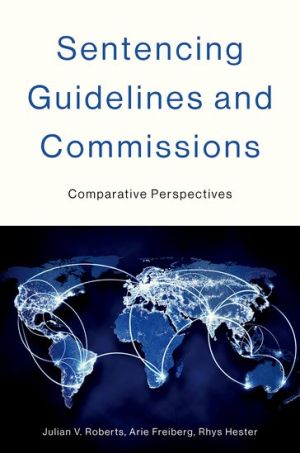
Since the 1970s, sentencing in many countries has evolved from a system in which courts enjoyed wide discretion to one where courts must follow or at least consider guideline recommendations. This movement towards greater structure has also led to the creation of independent bodies-sentencing commissions or councils-which now sit alongside courts of appeal and play a pivotal role in guiding courts, advising legislators, and communicating with the public. Sentencing commissions and councils perform a wide range of other functions including increasing transparency and promoting fairness, consistency, and public confidence in the courts.
In Sentencing Guidelines and Commissions, Julian V. Roberts, Arie Freiberg, and Rhys Hester synthesize existing literature on commissions and guidelines, identify key issues and problems, and clarify the future of commissions and guidelines since the creation of the first commissions in 1980. Drawing upon almost fifty years of additional developments and accumulated research on guidelines, commissions, and councils, the authors explore the benefits of sentencing councils and commissions and sentencing guidelines. Further, the authors look back to the cumulative experience around the world since the first guidelines were created and propose a model regime for legislatures to consider.
The first book on sentencing guidelines and commissions to take an international perspective, Sentencing Guidelines and Commissions aims to determine whether and how guidelines may solve, or at least mitigate, some of the problems of current sentencing practice.